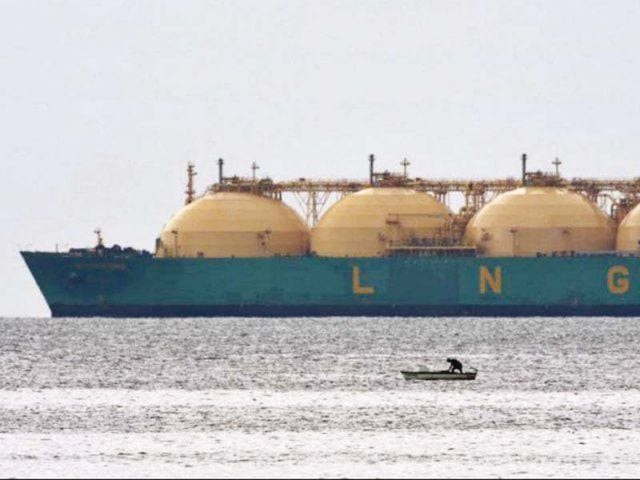LNG consumption by textile mills: Govt may provide subsidy out of GIDC collection
It could be termed misuse as cess is meant to finance gas pipelines

PHOTO: REUTERS
According to sources aware of the development, economic managers have decided to pay subsidy to textile millers on imported LNG consumption from the GIDC, which the previous Pakistan Peoples Party (PPP) government had imposed to finance the Iran-Pakistan gas pipeline project.
It levied the cess because it was unable to arrange external finances due to international sanctions on Iran.
However to the surprise of many, the Economic Coordination Committee (ECC), in a meeting on December 31, 2015, decided to provide subsidy to the powerful textile lobby out of the collected cess.
Meeting participants told the ECC that compared to the estimated provisional LNG price of $10.006 per million British thermal units (mmbtu) for the textile industry through the network of Sui Northern Gas Pipelines Limited (SNGPL), the millers were willing to pay $9 per unit.
The Ministry of Petroleum and Natural Resources proposed that the price difference could be borne by the government with the help of GIDC collection. This, it added, would be adjusted later, if required, after the determination of final price by the Oil and Gas Regulatory Authority (Ogra).
The ministry pointed out that the textile industry was interested in purchasing re-gasified LNG and suggested that in the current winter, around 60 million cubic feet per day (mmcfd) could be provided to them for 52 days.
This, ministry said, had already started in view of discussions between the ministries of finance and petroleum with representatives of the textile industry.
To ensure continuity, gas supply to Rousch Power Plant will be suspended and diverted to the textile industry in case of further demand and supply imbalance, which is expected in coming days.
The ECC was told that the textile industry had served as a catalyst for the economic development of the country, contributing around 60% to the total export earnings.
Though domestically produced natural gas is supplied intermittently to the textile industry in the summer to help run its operations, the drop in temperature in northern areas in the winter leads to a rise in demand from domestic consumers for heating purposes. In this situation, SNGPL is compelled to curtail gas supply to the industrial units.
Published in The Express Tribune, January 7th, 2016.
Like Business on Facebook, follow @TribuneBiz on Twitter to stay informed and join in the conversation.



















COMMENTS
Comments are moderated and generally will be posted if they are on-topic and not abusive.
For more information, please see our Comments FAQ